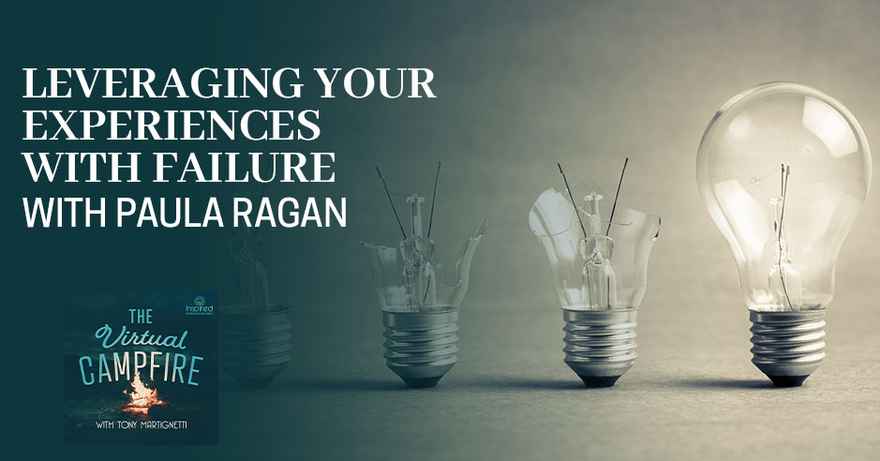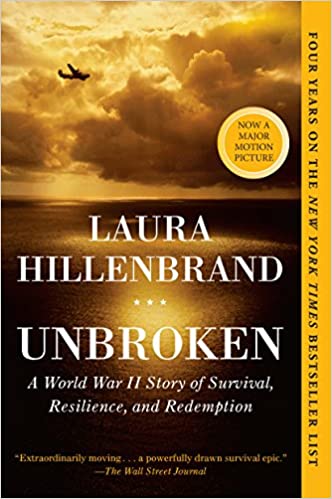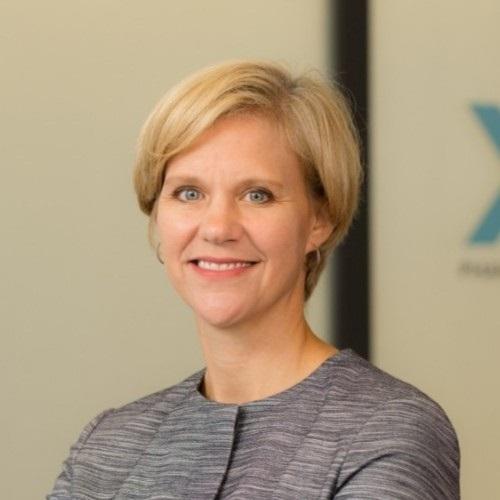Leveraging Your Experiences With Failure With Paula Ragan

How do you use your experiences of failure as stepping stones to success? Learn to value them and recognize them for what they are. Failure is the growth process you need to mature your way to success. Tony Martignetti’s guest today is Paula Ragan, the Founder and CEO of X4 Pharmaceuticals, a clinical-stage and product-focused oncology company. Paula talks with Tony about her journey into entrepreneurship and the flashpoints that eventually led to founding X4 Pharmaceuticals. She faced challenges and failures along the way. But she learned how to use them to propel her to success. Her focus? To help patients all over the world. Tune in and use failures as stepping stones to success!
---
Listen to the podcast here:
Leveraging Your Experiences With Failure With Paula Ragan
Paula Ragan is the Founder and CEO of X4 Pharmaceuticals, a clinical-stage and product-focused oncology company. Their mission is to develop the best in class CXCR4 antagonists, a small molecule cited for its potential for having anti-carcinogenic benefits.
It is my honor to introduce you to my guest, Dr. Paula Ragan. She is the CEO, President and Founder of X4 Pharmaceuticals. Paula has years of experience building and leading companies in the biotech industry. Prior to joining X4, Paula spent six years working in a variety of leadership roles at the Genzyme Corporation before it was acquired by Sanofi. She has a PhD from MIT in Biomedical Engineering, Health Sciences and Tech Concentration and a Master’s of Science from BU in Biomedical Engineering. Paula, I want to welcome you to the show.
Thank you so much, Tony. It's wonderful to be here. I appreciate the opportunity.
I'm thrilled to have you here. I'm looking forward to knowing all of the elements that have made you into who you are in leading this amazing company, doing great things for patients and quite an impact in the world. What we usually do is focus on what's called flashpoints, the points in your story that ignite your gift into the world. The way we do that is by opening up to share what you're called to share. You start where you want to start on the floor and along the way, we will pause and create some points of reflection to see what are the things that we see coming up along your journey. Go ahead and start when you're ready
It’s wonderful to be oriented to this thought process. I appreciate the opportunity to think about these flashpoints. It's a little bit of a blender. We're all a product of our life's journey. When I think about some of the imprints that I have that help tell the story, I do honestly remember I've been a Science and Math lover, a nerd, or however you want to embrace the term since I've been very young. I used to do work problems for fun because that was just how I was. In middle school, I remember seeing the cover of Scientific American magazine and seeing a prosthetic arm. I can still picture the magazine. It was amazing to me that you could build something to help somebody that had a pretty big deficit.
This is the intersection of Science, technology and helping people. When you're in middle school, you don't know what careers are and how it all works together. I did go down the road of exploration. Our hometown had some wonderful ways of learning to do that through Explorers Club, etc., but the first flashpoint was like, “This could all come together in a real way.” I went off to Engineering and the next flashpoint was a little bit of a combination of two events late in grad school where I was almost more down the medical device road and a colleague of mine in grad school got very sick. He passed away from a brain tumor. That was at the same time I was trying to figure out how do I want to start applying this. The drug-device world started to become a hybrid a little bit with around the genomics revolution.
We're all a product of our life's journey.
My own career path took me to a lab where there was an opportunity to get a better lens about how drugs can help people. Devices are a little bit more tangible but I was like, “Could you develop a pill that could grow an arm back as opposed to building one?” These wonderful fantastical visions of how you could create therapeutic interventions to do something to bring back someone to more of a restorative health perspective.
Between those two synergies of events, I can see the power, vision and it's hard. Every time a drug is approved, I have a personal victory dance for everybody who achieves that because what we're trying to do is hard. There are many variables. The capital, leadership and commitment over decades or more, it's a gift once something gets approved. That second convergence of these two events in my life helped me go down the drug discovery road. Genzyme was an epiphany.
To go to a company that puts patients first, you felt you were submerged in the air that made you feel differently. There’s a wonderful culture. I do think they put patients before profits. Our industry needs to be self-sustaining. I almost think people were apologetic about that but at the end of the day, that profit allows for reinvestment and more innovation. I do think Genzyme was wonderful in putting how do we think about patients first, create a sustainable and investible dynamic for future patients they've yet to be able to address. The Science nerd, scientific American, grad school, some life events and decisions, the power of drug discovery and Genzyme are the stepping stones for me to be lucky to be where I am now.
There are many things that come through and as you described that path, it's like there's an element of leading from your head and heart. Genzyme was the perfect place for you to land. It almost fit a glove. When you have such a strong passion for Science but you find that it's driven by this real desire and emotional connection to wanting to do more, treat people and get people what they need, it's pulling you forward.
There's something about when you were talking about Genzyme that connected because I have a passion for that as well, is that knowing that it's not a shell. It's not like, “We want to do the right thing for the patients.” Walking the talk is an important part of that. I can tell you believe that from your soul. Tell me more about what were the trials and tribulations of the process of, first of all, coming up through your studies and making the transition into your career. How are you surprised by all the transitions that you had to make?

The opportunity that everybody has in their own career journey is, how do you start to know yourself well and also know what the possibilities are and marry those? Right after grad school, I remember I did a lot of networking and some of those conversations were helpful to me to go, “What do you enjoy doing? How do you take your gifts and apply them to the doing part so you can develop yourself?” Even how I got the book, What Color Is Your Parachute? I filled out my little exercises.
It was interesting because I was doing that as I was networking and an opportunity came up around corporate development. Put those words together for someone who's in grad school and you have no idea what that means. When I got to chat with my eventual hiring manager, I was like, “This looks like a good fit for me. Looking back, I was lucky. Everyone's like, “How did you move into corporate development?" It's something people aspire to and build on.
They got lucky. They needed a subject matter expert and he appreciated my ability to communicate, which I think was something that has been a little bit easier for me in general. I loved Science for such a long period of time that I got used to talking about it in a way that hopefully people could engage with me. That was a little bit of the first leap into corporate development, which was wonderful because it's like the cockpit of a plane. There are many different dials to learn about, think about and integrate. All of them are important.
How do you learn to talk to people to understand what their expertise is? That's the corporate development career path that ultimately brought me to Genzyme, which I still feel was such a great place to learn. It was a large company with a lot of experts but it made you feel you were in a small company. You could almost talk to anyone. If you made a case to connect with someone for half an hour, people were very generous with their time.
When I was at Genzyme, there was a supply crisis. Unfortunately, that led to the ultimate changes of the company being acquired for the patients. The number one thing is some patients didn't get the treatment that they had. Everybody at Genzyme did whatever they could to address that but our business isn’t easy as I started. The transition to ultimate CEO was I realized I wanted to be in a bit more of an operational role. I transitioned into manufacturing because of the supply crisis. I wanted to see what I could do to help and had the good fortune of networking with someone who helped me get there. I realized I had a lot of opportunities in life to pull all these operational and strategic components together.
Value every step of the way, both the peaks and the valleys.
I wanted to get back to a small company to see if I could do it. I'm a bit of a competitive person. There are people along the way who are like, “Good luck with that.” It's hard. I took the atypical path to become a CEO and in some ways that were good for me because it fueled my fire. I was like, “One of us is going to be right. Let's have at it and see what life brings.” I was fortunate to have a lot of mentors and supporters along the way that helped me feel I could do it in some of those harder moments. X4 is now a public company. It's grown a lot. I've grown a lot professionally. I value every step of the way. Both the peaks and values have helped me develop as a leader and hopefully be able to start to give back to the broader community.
There are a few things I wanted to pull back from what you were talking about. Is this the element of people where there are a lot of naysayers around the way, you had a way of dealing with that and saying, “I got to see for myself?” Everyone has their own lens of seeing things. You're able to push back and say, “I get it but I'm moving forward.” How did you deal with that? Was it something that you had in yourself like, “This is me? This is home. This is my path.”
Some of the naysayers were thoughtful. It made me think, which is always a good thing. You want to incorporate what's their lens. It's almost a probabilities question. Everything is probability. It helped me sharpen myself. What can I surround myself with to help bolster the probabilities and what can I learn? I tried to always continue to make decisions based on risk-benefit, even for myself as a person, rather than like, “I'm afraid I'm going to fail." Not being too worried about failure because the growth process comes through that.
If you remember the exams that you did well on, probably not but if you remember a couple of those doozies, it's like, “Err.” You have clarity on where you can improve and grow as a person. Those are some of the smaller flashpoints for me because I love to win. I'm competitive. For a blessing or curse, it's fun to be able to say I needed at least to this degree for people that are questioning appropriately how I get there and it's helped me.
One of the things you also hit on, which was I hear as a common theme, is that there's an element of surrounding yourself with the people who are going to support you and champion you. In the community, in general, it’s something that's important because nothing gets done truly by one person alone always. There are elements of you have to make decisions sometimes and it can be very lonely at the top, but still you know you're not the only one making those decisions. There are other people going through what you are going through. There's comfort in that. Tell me more about the early days of X4 when you came on board and you're like, “I don't know what I'm doing.”

I had two camps of types of people or advisors that helped me in different ways. There were the folks Henri Termeer and Mike Bonney who gave very generously of their time and came in at some of those strategic moments. They helped imprint my thought process and how to help build the company. A few others and a lot of them you'll hear are the gift of Genzyme. The gifts of people who still gave their time, even post-Genzyme, to help me. A couple of other leaders, maybe lesser known in the industry but profoundly influential to me were Alison Lawton and Scott Canute. I had connectivity with both of those folks back at Genzyme. They helped me much on a closer level to the company. Alison helped consult right in the beginning.
I remember Henri suggesting I talk to Alison and we were exploring her. We joke about this out a lot because I'm like, “Why would you work for me?” Even as a consultant, she was a phenomenal leader. For me to benefit from being around her as she helps with some of the strategies to tactics, I got to see a role model on a closer daily, weekly level than appropriately what Henri, Mike or the others were doing given their breadth of opportunity. Allison's leadership was a gift to me on a closer level. It helped shape my thinking as a leader. Scott Canute, who was a previous executive at Genzyme in manufacturing, also provides a lot of that backstop on how do I build a team. It was from an N of one. We went from me to 70 people. It's not easy for me. I didn't have a lot of management experience. Those two folks were tremendously influential, helpful and a great sounding board.
Not every reader here is going to be from the biotech space. There’s a lot of pressure for a biotech leader because of the failure rate, challenges and headwinds. Speak to what you were up against running a biotech company, especially in rare diseases.
The ingredients for sustainable companies are our management teams. It's a strategy and convincing investors to believe in that strategy. That's asset-independent. First are the assets, which took me a while to formulate or own from an out-licensing perspective. The other three ingredients were almost at nascent levels. Taking and trying to surround myself with good people was a journey, setting strategy, and even being nimble because biotech doesn't always work out. For me, always the strategy is what are my three options. There's almost 1st, 2nd and 3rd because if first doesn't work out, try to move 2nd and 3rd up because you have to keep leveraging what you learn, reinvesting it and redirecting it.
I was very conscious about creating multiple shots on goal and convincing the rest of the world that it makes sense to invest. I had never raised a dime before. I remember the first person I asked for money officially on behalf of X4, I was sheepish. Now, I'm completely converted because I'm like, “Sure, can we put you down for $20 million?” That was certainly a journey. I remember one comment Henri made to me. He goes, “Of course, you can raise money.” I was thinking, “I don't know if I can do this.” As a company, this is not just me but the journey has taken us, from me to a full team where we've raised a lot of capital to do the thing for patients. Starting our registration trial hallmarks that success as a company.
During tough moments recognize that you can make it, even though it's hard.
There's something about the leadership that people have in you. They believe in you more than you did in yourself at times. It's that strong foundation that you come from that helps you to build to where you are. All of a sudden, you look back and say, “This is where I am. How did I get here?” I talked about that a lot around. There are little steps you're taking and all of a sudden, there's this moment and you're like, “Here I am.” It's an amazing process of arriving at this point where now you're doing things that you never thought you would do. What do you think is the next big challenge for you and the company together without giving away any secret information?
We're at an interesting point where we're a late-stage development, so the next way we grow up as a company is through commercialization. Not that far off and in our industry, we're already having a lot of effort to commit to that but it's a deep corporate and personal obligation and sense of responsibility when you deliver a new treatment to the world. What trust the world is taking in the company, both in the actual physical medicine and the data to support the whole process of commercialization, is a threshold across and it's not one to be taken lightly. We're growing up at the right pace but it's daunting. It's like, "Here's your driver's license." You can do all the training, talking and all the preparation, but when you're behind the wheel for the first time, it's a huge responsibility to be thoughtful and recognize the freedom and the responsibility that you have with that. That's where we’re at.
It's been a path that other people have gone down before but at the same time, this is a disease area that is new or it's not one that's had a therapy yet. It is a new path for this patient population and they are in need of treatment. There is a lot of pressure, no doubt. In that vein, I was thinking about how you motivate the team. Inspiration is something I'm always talking about. How do you work with the team to inspire them to keep them going in this effort?
When people think about me and my motivation, there's also how you surround yourself. You connect with people who are motivated by you. People would mostly describe me as patient focus grit. Our patients go through a lot. People who are suffering from illness, their days are nothing compared to ours. There are hard days but if you can keep that perspective, you can be able to have open conversations and recognize, “Yes, this is hard. We didn't expect this new piece of information. It's not what we wanted but we'll keep going forward.” Inspiration, peaks and troughs or maybe the troughs, are a little bit easier for me because that’s a perspective that I can offer on the peaks.
I try to celebrate more. That's who I am and I have done a better job at realizing it's such a long journey. You want to celebrate even the small victories for the committed people who've delivered on those. It's celebrating the small things because that's where we all get to embrace it. In those troughs or deep moments, try to recognize it's hard but we're going to make it. On behalf of our patients, we can do that.

It’s important to have that patient at the center and always thinking about them. That's something that Henri has always been instilling in us. What are the things that along your journey have been big lessons that you feel that new CEOs or up-and-coming leaders in the space need to know based on your experience so far?
It sounds such a trait saying but it's always about surrounding yourself with the right people. I remember honestly hearing about this when I was starting a company. It was a little bit of eyeball rolling. It’s like, “Do good in the world.” It seemed such a basic statement but now I've lived through it. Every human is an individual and to gain your own self-awareness of what you're good at and what you need to be complemented by other people's skills. It's a village. This is not a sole contributor role.
Even a CEO, the team, our co-CEOs, co-leaders and co-developers of the company, it's important to compliment yourself and recognize when you need to do it in your own growth. That what I needed two years ago is different than what I may need now and it's the same for other people on the team. Find the right fit and don't be when it's not. Everybody almost knows that when things are fitting and not, and everybody has the right fit. Every human's a puzzle piece. They'll find the right puzzle. Don't be afraid to have those conversations so everyone can be fit in the right place for each other.
There's also something about that that says, “Knowing when you need to pause for yourself and recognize times for people to assess for themselves, 'Am I in the place? Am I in the right state to be in this place?'” Anything else on that and any additional thoughts you had?
It's also being patient. Our sense of urgency is great for the business but there are also the right times to pause or be patient. Maybe that's self-learning for me as well because patience is not my virtue. I have a joking cartoon that says, “Why isn't hurry up a virtue?” I do think patience is important because it will complement the sense of urgency and help me and others be wiser in our decision.
Patience is important because it complements the sense of urgency and helps you make wiser decisions.
I can almost see patience for the patients because they need you to be patient with them. What was the one thing that has been the biggest emotional challenge for you along this journey? I know it's a strange question but where have you struggled the most from an emotional standpoint along this leadership journey?
I would say the board of directors evolution. As a construct, the board of directors is very unusual. I don't think the public view of what a board of directors is or isn't supposed to view is the right lens but it's the one that you grow up into. It's interesting because the board of directors isn't the boss of the CEO. It's a symbiotic relationship where they hire the CEO. You want to get the right tension with the board in terms of challenging and asking the hard questions but also aligning behind the strategy and the team. That was tough for me. When you're first starting off, you have more of a reverent view of the board and the experience and it's very normal.
At the end of the day, the board works for management and if they don't want to do that, then they can change the management. It's weird and it still is a little bit, but I have a phenomenal board share. A strong board share is my view critical for the success of a company and Michael Wyzga has been a gift. That's helped me with the emotional journey of growing up to that right balance. The challenge, I want the expertise but at the end of the day, we have to make our own decisions as management.
That's such great insight because most people who are early days don't see that. It takes a lot of growing up to get there to realize that's how this works. I want to take one reflection to look at the whole totality of your story and say, “Would you ever have thought that you'd be doing this?”
No. I joke there's a fine line between naivety and bravery. That's the right description for me because I was a bit naive starting the journey of building a company. I never thought it would take me into the public road. I thought, “Where would it take me?” Now being the leader of a public company made me appreciate the opportunities within biotech. The opportunity has allowed the product to keep moving forward the capital markets on the public side. When you're in registration trials, there is capital intensive period, no matter where or what you're doing. The public markets are a very good part of our ecosystem to enable that. I'm thankful that that exists, but I don't think I even had that appreciation when I started this journey.
 Along with the same place of thinking about where you started and where you are now, do you sometimes wish you could focus on the Science, to be doing the Science piece back on the bench or tooling around with the Science? Do you miss it?
Along with the same place of thinking about where you started and where you are now, do you sometimes wish you could focus on the Science, to be doing the Science piece back on the bench or tooling around with the Science? Do you miss it?
I was a horrible bench scientist. For all of you bench scientist people, there are other careers you can do. I don't miss that at all. I love Science, though. My happy place is I go to PubMed when I get a little slot of free time. It's like dessert. I look at PubMed and get my little fix there. I have come to be in awe of how the layers of my company have grown and from an internal promotion. It's so much fun to see these people unlock themselves and I'm enjoying that. I don't know if that was not self-awareness several years ago. I'm going to enjoy watching a half dozen people get promoted or some people shifts from A to B and we've helped enable a different career trajectory for them. I've enjoyed that. That's a nice lens that I would have never gotten in most other positions.
I love the way you talked about that because it's important for leaders to see their people want to exceed their expectations. It's such a great mentality. What is one book that has impacted your thinking or one of your favorite books?
I'll do a reveal because I joke that I'm a 90 plus-year-old war veteran wrapped up in whatever this is. Seriously, all of my books that I find inspiring are on that theme. A few years ago, I read the book Unbroken by Laura Hillenbrand. The story is amazing. The human being is an amazing person. I find it inspirational that a person can go through such peaks, valleys in his own life and be so human. Louis Zamperini is that the subject of the book. He passed away. I find his life inspiring. I also read The Splendid and the Vile about Churchill's first year in office. He was the right person at the right time. In our history, it’s one of the darkest moments around the initiation of World War II and his role in that. I previewed the warning. Those are my two books.
Those are two amazing recommendations. I always love this question because I hear many great books. My library is getting bigger. I don't know where to begin. This has been such an enjoyable conversation knowing your story and insights. I'm thrilled that we have someone like you running this company, the patients that are waiting for your therapy were lucky. Thank you so much for coming on. Where can people find out more about the work you do and more about you?
Our company's website is X4Pharma.com in terms of what we're doing. Honestly, reach out to me directly at Paula.Ragan@X4.com I love to hear from people. People have been generous in their lives with me and helping me think things through in my own professional journey. I would be happy to offer that to anybody as well.
Thank you so much for your time. I also want to thank the readers for coming along on this journey with us. I know you're walking away with some great insights. You probably know now about biotech than you did before you came on board. You're in good hands. Thank you again.
Thank you again, Tony. Take care.
Important Links:
- Apple Podcasts – The Virtual Campfire
- Facebook – Tony Martignetti
- Twitter – Tony Martignetti
- LinkedIn – Tony Martignetti
- X4 Pharmaceuticals
- What Color Is Your Parachute?
- Unbroken
- The Splendid and the Vile
- Paula.Ragan@X4.com
About Paula Ragan

Dr. Ragan has been X4’s President and Chief Executive Officer and a member of the X4 Board of Directors since July 2014. She has more than 18 years of experience building companies in the biotechnology industry. From August 2012 to September 2014, Dr. Ragan consulted as Chief Business Officer at Lysosomal Therapeutics Inc., a private biopharmaceutical company, where she led the company’s business development activities.
Prior to that, from January 2007 to August 2012, Dr. Ragan held leadership roles in corporate development and operations at Genzyme Corporation, a Sanofi company, where she led strategic partnering efforts for Genzyme’s Rare Disease business and headed the supply chain planning for Genzyme’s flagship commercial products. Other professional roles include business roles at Hydra Biosciences, Oscient Corporation and Celera Corporation. Dr. Ragan received her B.S. from Tufts University and her Ph.D. from Massachusetts Institute of Technology and completed post-doctoral studies at Harvard Medical School.
Love the show? Subscribe, rate, review, and share! https://www.inspiredpurposecoach.com/virtualcampfire


0 comments
Leave a comment
Please log in or register to post a comment